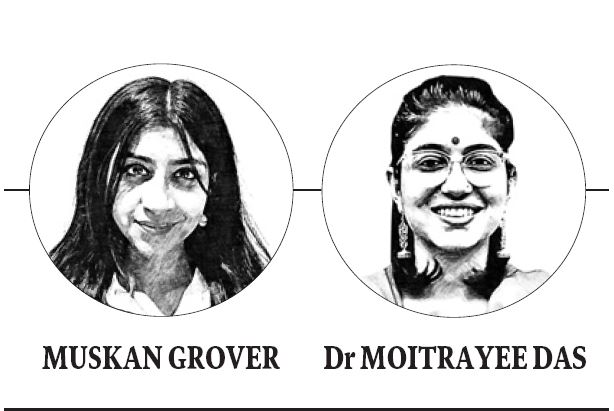Set focused goals which are achievable and not unrealistic, and that which align with your life-setting
Published Date – 18 February 2024, 11:45 PM

By Muskan Grover, Dr Moitrayee Das
A practice that began nearly 4,000 years ago continues to prevail, with each passing new year being coupled with the desire to drive change. It marks the beginning of a new start sprinkled with a list of promises we are motivated to uphold. Whether it involves quitting a bad habit or creating a desirable one, we are all guilty of expecting great change as the clock strikes 12. While at least 38% of adults crack down and make promises to themselves, 80% of these are forgotten by the time February rolls around (Allen, 2023). This raises the question of how healthy and feasible it is to expect ourselves to change overnight. How productive is this practice in the long run?
Research recently found that only 5% of people stick to their resolutions halfway through the year and a mere 1% make it through all calendar pages (Davis & Hall, 2023). Sports app ‘Strava’ recorded user activity and noted that most people fell off the health wagon by January 19, terming it as ‘quitter’s day’ (Best, 2020). Taking the phrase ‘Thank God it’s Friday’ to newer levels, studies found that Friday was a common day for people to drop sight of their resolutions (Best, 2020).
Further, a Forbes survey revealed that 62% of the participants felt pressured to create resolutions for the New Year (Davis & Hall, 2023). Notably, men reported feeling more confident about their abilities to succeed in their goals than women (Allen, 2023), yet the incessant need for such commitments was shown to materialise itself in women more than men (Davis & Hall, 2023).
These statistics point towards the same daunting truth — perhaps our age-old tradition was built on a flawed foundation. But before diving into how we can create a stronger base for 2024, it is essential to recognise where the tendencies to create a new us with a new date stem from.
Optimistic Start
Do you feel as though the rosy glasses of optimism and motivation colour the months of December and January? Have you ever perceived this period to be an ideal time to embody an improved version of yourself? Psychologists term this phenomenon the ‘Fresh Start Effect.’ This talks about how new beginnings are likely to be viewed as an escape from previous failures or shortcomings causing a psychological reset. It increases our motivation and self-efficacy causing us to make unrealistic and unspecific goals. Additionally, it makes us draw attention towards the outcome instead of an action.
While feeling optimistic is great, it is also temporary. As time passes, so does our motivation to stick to our promises. This results in self-doubt and gives rise to a vicious cycle of partially fulfilled goals. The intensive pressure integrated with the term ‘resolution’ plants the seed for a negative feedback loop when things do not go as imagined. Consequently, one may begin to question their ability to fulfil their planned desires or begin to lose motivation.
The good news? Chances are, the problem is not you, but rather a consequence of the high expectations we tie to a new date. The term resolution overpowers the basic sentiment of what we are truly attempting to achieve — a new behaviour. Over the years, we have been saturated with information about how we can achieve our resolutions.
A popular practice adopted in recent years involves the curation of vision boards. Vision boards are a collage of images, affirmations, and symbols, or words that encapsulate your aspirations for the future. It is a holistic representation of what one wishes their life to look like in the future, including all aspects such as career, education, health, wealth and love.
Vision Boards
How and why do vision boards work? While there is an abundance of explanations available on the internet, the most scientific explanation includes two concepts— the self-efficacy theory and the reticular activating system. Simply put, the self-efficacy theory states that one is more likely to achieve their goals if one believes that s/he can do so. Thus, through visually depicting our goals, we are reassured of our capabilities while simultaneously being reminded of our aspirations.
The reticular activating system (RAS) refers to a network of neurons present in our brain stem that are responsible for focusing our attention. By keeping vision boards within reach by placing them in rooms or as digital wallpapers, this system begins to prioritise information related to our goals. Consequently, we become increasingly aware of opportunities and resources that can aid the accomplishment of our desires. According to neuroscientist Tara Swart, our brain filters out unnecessary information and imprints important information in the subconscious. This process is termed as ‘value tagging.’ Thus, by making goals specific and evident, the brain begins to focus on information which relates back to our desires.
Measurable Goals
Vision boards may not be everyone’s cup of tea. Thankfully, other ways can be applied to diminish the daunting effect of resolutions. By being smart about your goals, you can make them specific, measurable, attainable, relevant, and time-bound. Set narrow and focused goals which are measurable through some metric. These goals should be achievable and not unrealistic, applicable to your current life setting, and have a timeline that you can follow. So, instead of making promises such as saving more money or eating less chocolate, try being as specific as you can.
Changing habits is never simple. It requires consistent daily effort as well as the room to make mistakes. Resolutions overpower the daily adjustment and consideration necessary to work towards an improved life. They act as blindfolds to our existing reality and make us overlook the process of modifying our behaviour. And although a new year may seem like a great time to create new beginnings for some, the same drive may not be felt by all. The pressure of a new you in the new year may even backfire. Thus, while in their essence resolutions are simple promises we make for ourselves, it is essential to remember that we do not have to align our actions with the movements of the earth.

(Muskan Grover is Undergraduate student and Dr Moitrayee Das is Assistant Professor of Psychology at FLAME University, Pune)




